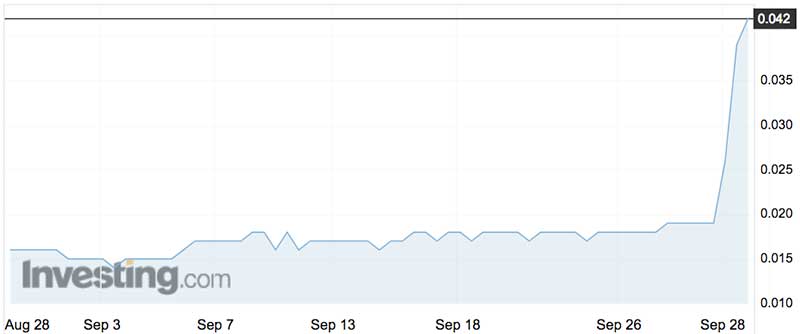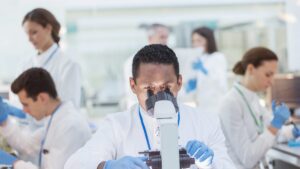Biotron says it made a ‘major step’ towards curing HIV and its shares are flying

HIV drug developer Biotron has soared today after announcing positive results for its most recent drug trial.
Biotron (ASX:BIT) has for many years been developing a small-molecule therapy, BIT225, to treat viral infections including HIV-1 and hepatitis C.
HIV-1 is the most common and infectious variety of HIV.
Today the biotech announced the drug was “having a unique effect in patients, over and above viral suppression seen with current antiretroviral drugs” in phase 2 trials.
Antiretroviral drugs do not kill or cure HIV but are used to prevent growth of the virus.
Clinical trials are generally divided into three phases. Phase 1 focuses on safety, Phase 2 tests for effectiveness and Phase 3 examines whether the new drug is an improvement on existing treatment.
Biotron boss Dr Michelle Miller said the test results were “a major step to the ultimate goal of curing HIV-1 infection”.
The stock soared 136 per cent to an intraday high of 4.6c before cooling to 4.1 at Friday’s close — valuing the business at $9.5 million. About $1 million of shares changed hands by 11.30am AEST.

“The data shows there are significant immunological benefits in patients receiving antiretroviral drugs with 200 mg BIT225 compared to antiretroviral drugs plus placebo,” the company said.
In HIV-infected people, the virus hides in long-lived cells known as macrophages that persist even in patients who show no detectable virus in their blood, Bitron says.
Biotron has previously shown that its BIT225 drug attacks HIV-1 growing in macrophage cells.
“The headline results indicate that BIT225 has had a profound effect on a source of virus that persists in the presence of antiretroviral drugs,” Biotron said.
- Subscribe to our daily newsletter
- Bookmark this link forsmall cap news
- Join our small cap Facebook group
- Follow us on Facebook or Twitter
“Eradication of this virus, produced by long-lived reservoir cells, is central to an eventual HIV cure strategy.”
The latest tests — which involved 27 patients — “clearly show BIT225 is doing something new and different to these current antiretroviral drugs”, said Biotron boss Dr Michelle Miller.
“This trial shows for the first time that there may be a way to clear one of the main cellular reservoirs. This is a major step to the ultimate goal of curing HIV-1 infection.”
Biotron hopes to present detailed data at scientific conferences and to potential commercial partners late this year or early 2019.
UNLOCK INSIGHTS
Discover the untold stories of emerging ASX stocks.
Daily news and expert analysis, it's free to subscribe.
By proceeding, you confirm you understand that we handle personal information in accordance with our Privacy Policy.








